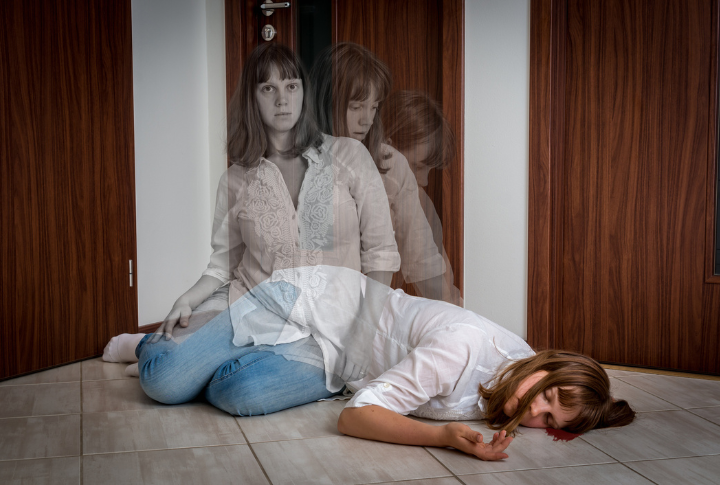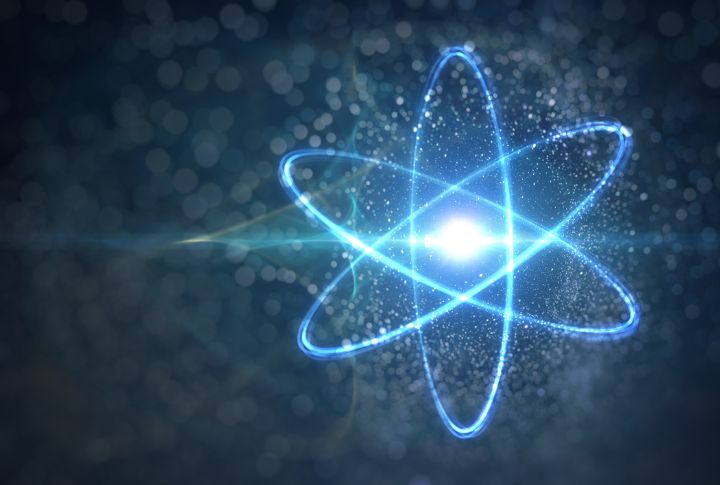
Through quantum physics, our understanding of the universe has been transformed as it challenges traditional concepts of reality. One of its most intriguing propositions is that death might not be the end but an illusion. So, is our comprehension of this final chapter fundamentally flawed? Could it be that death, as we perceive it, is merely an illusion crafted by our limited human perspective?
What is Quantum Physics?

The study of the smallest particles in the universe, like atoms and photons, is called quantum physics. It reveals that these tiny particles can behave in strange and unpredictable ways, such as being in multiple places at once or instantly affecting each other even when far apart. These unusual behaviors show that the universe operates on principles different from the everyday world’s.
Consciousness is Beyond the Physical Body

New theories of quantum physics suggest that consciousness goes beyond the physical brain. Some theorists say that consciousness is a fundamental universe property, existing independently of matter. If this is true, it could explain near-death occurrences, out-of-body experiences, and even survival of consciousness after the physical body ceases to function.
The Illusion of Time and Space

We usually think of time as a straight line, moving from the past to the future. However, time and space are flexible and connected unexpectedly in the quantum world. It questions our belief that death is a final stop in a straightforward timeline. Instead, it suggests that death might not end but a shift to a different state or dimension.
Quantum Immortality

Building on these ideas, some scientists have proposed the concept of quantum immortality. The theory suggests that consciousness, a quantum phenomenon, might exist in multiple possibilities even after physical death. In this view, death becomes a branching point, with different versions of consciousness exploring different realities. While this concept remains highly speculative, it offers a fascinating perspective on the nature of mortality.
Role of Near-Death Experiences

Near-death experiences (NDEs) have fascinated people for centuries. Often involving feelings of peace, detachment from the body, and encounters with light or deceased loved ones, NDEs have been reported by people from diverse cultures and backgrounds. Some researchers believe it could be evidence of consciousness existing independently of the physical brain, aligning with the quantum perspective on death.
Quantum Entanglement

It is a phenomenon where two particles become interconnected, regardless of distance. Actions performed on one particle instantaneously affect the other as if they were one. A few theorists propose a connection between quantum entanglement and consciousness, suggesting that our minds might be entangled with the universe. It could explain the sense of interconnectedness often reported in near-death encounters and meditative states.
The Holographic Universe Theory

Another concept related to quantum physics is the holographic principle. This theory proposes that the entire universe can be described as a two-dimensional information field projected onto a three-dimensional space. If our reality is indeed a hologram, it raises questions about the nature of consciousness and the potential for its persistence beyond physical death.
Challenges and Criticism

It’s important to note that the idea of death as an illusion is highly speculative and faces significant issues. Many scientists are skeptical of the claims made by quantum physicists and consciousness researchers. Critics argue that there’s insufficient evidence to support the notion of consciousness surviving physical death and that neurological or psychological factors can explain near-death encounters.
The Power of Belief

Regardless of the scientific evidence, the concept of death as an illusion has profound implications for our knowledge of life and our place in the universe. It offers a sense of hope and possibility, suggesting that our consciousness might continue to exist in some form beyond the physical realm.
Exploring Consciousness

One of science’s most complex challenges is understanding consciousness and the nature of reality. As technology advances, we can expect to make groundbreaking discoveries that will shed new light on these age-old questions. Whether or not death is ultimately proven to be an illusion, the exploration of consciousness is a journey of great human significance.
Embracing The Unknown

Ultimately, the question of whether death exists or not remains unanswered. Nonetheless, contemplating this possibility can lead to a deeper appreciation for life and wonder about the universe. By embracing the unknown and exploring the frontiers of human knowledge, we can expand our knowledge of ourselves and our place in the cosmos.
The Role of Spirituality and Philosophy

While science offers valuable insights into the nature of reality, spirituality and philosophy have long explored questions of life, death, and consciousness. These disciplines can provide complementary perspectives and offer frameworks for understanding our encounters. Incorporating insights from both science and spirituality can enrich our perception of the human condition.
Death as a Catalyst for Personal Growth

Even if death is not the end, it is a powerful motivator for living a meaningful life. The awareness of our mortality can inspire us to pursue our passions, connect with others, and positively impact the world. By embracing the impermanence of life, we can live with greater purpose and fulfillment.
Ethical Implications

The idea of death as an illusion raises ethical questions. If consciousness can potentially survive physical death, how does this impact our apprehension of concepts like euthanasia, organ donation, and end-of-life care? These complex issues require careful consideration and societal dialogue.
The Future of Death Research

Advancements in quantum biology and neuroscience are opening new avenues for understanding consciousness and its relationship to physical reality. While we’re far from conclusively answering questions about death, these fields promise exciting discoveries. As physicist Michio Kaku puts it, “The next revolution in our perception of consciousness may come from the quantum world.”


Comments
Loading…